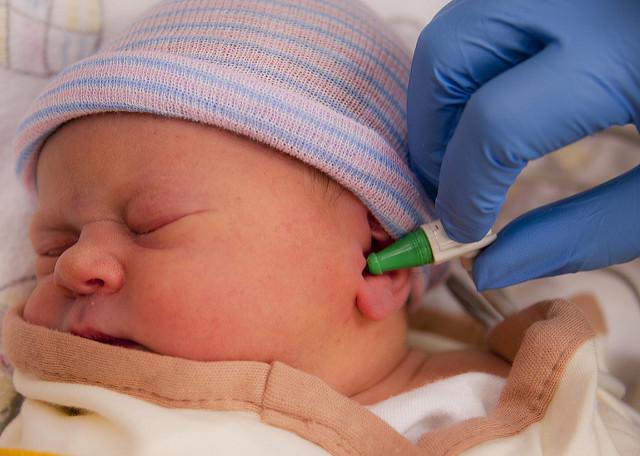Brazilian researchers today in Morbidity and Mortality Weekly Report (MMWR) described congenital hearing loss associated with Zika virus in infants born with microcephaly, similar to a pattern seen with other types of infections.
In other developments, the World Health Organization (WHO) said its Zika emergency committee will meet later this week to discuss the latest developments, and the US Centers for Disease Control and Prevention (CDC) added two more newly locations to its Zika travel warning.
Hearing loss alongside severe microcephaly
The study was based on hearing assessments taken at the Hospital Agamenon Magalhães in Brazil between November of 2015 and May of 2016. Doctors tested the hearing of 69 infants with Zika-associated microcephaly. Other causes of infectious congenital hearing loss were were excluded through testing.
Among 69 tested, 4 had sensoneural hearing loss. Two infants had bilateral hearing loss, and two had unilateral; all four children had severe cases of microcephaly. Among the four infants, all had mothers who reported Zika infections in their first or second trimesters of pregnancy, with accompanying rash.
According to their findings, the prevalence of sensorineural hearing loss was 5.8% in infants with microcephaly and confirmed exposure to Zika virus. That rate is similar to the frequency of infant hearing loss after other congenital viral infections, including cytomegalovirus (CMV), rubella, toxoplasmosis, herpes simplex, and syphilis.
"In the majority of cases of hearing loss associated with congenital viral infection, the damage to the auditory system is within the cochlea," the authors write. "It is likely that similar lesions account for the hearing deficit in children with congenital Zika virus infection, although histologic studies are needed to confirm this."
The authors conclude that Zika infection is a risk factor for infant hearing loss, and suggests, "all infants born to women with evidence of Zika virus infection during pregnancy should have their hearing tested, including infants who appear normal at birth."
Emergency Zika meeting scheduled for Thursday
The WHO will be holding the fourth emergency meeting on Zika on Sep 1, which will be focused on neurological disorders and neonatal malformations. The meeting will help determine if Zika still constitutes a Public Health Emergency of International Concern (PHEIC) as defined under the International Health Regulations.
Experts will hear reports from countries where Zika is endemic concerning transmission rates, outcomes, and interventions, according to an e-mail sent to journalists.
The WHO said it would hold a media briefing afterward to share the meeting's outcome.
CDC travel warning expands
In other global Zika news, the CDC issued a level 2 travel warning for the British Virgin Islands. According to a statement, local transmission is occurring on the island of Tortola, which includes Cane Garden Bay and Havers.
The CDC said pregnant women should avoid all necessary travel to the British Virgin Islands.
Also today the CDC also issued a travel warning for Singapore. Yesterday, the city-state reported 56 cases of local transmission of Zika.
See also:
Aug 30 MMWR study
CDC Zika travel guidance
Aug 29 CIDRAP story on Zika in Singapore






















